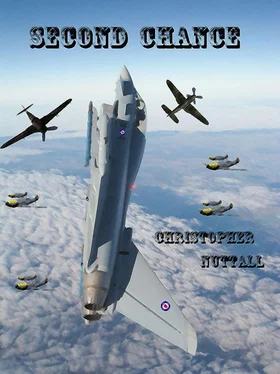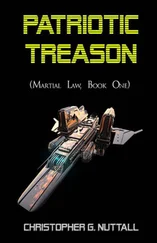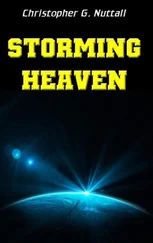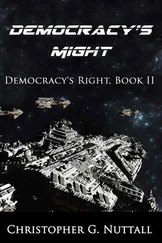There was surprisingly little panic, mainly confined to regions that would have faced a German invasion and were bombed by German aircraft during the Battle of Britain. What panic there was appeared among tourists – including one caused by a rumour that all Germans would be returned to Germany to face Hitler – and members of the ethnic communities, who had been suddenly cut off from their families on the other side of the world. They rioted in places; riots that were crushed with considerable ruthlessness. (Post-September, much of the Muslim population of the UK would be invited/encouraged to move to the Republic of Arabia). On a lesser scale, Indians, Pakistanis and Bangladeshis attempted to influence the new provisional government in India – several thousand would take up permanent residence there later.
The government acted quickly to freeze the growing economic crash, particularly in companies that were based in the United States, before thousands of people were forced suddenly out of work. Despite claims of growing socialism, all changes in work status were frozen by governmental decree in July, forcing companies to continue paying their workers, which (intentionally) forced them to adapt to the post-Transition world. Several American and Japanese factories, subsidies placed in the UK to enter the EU trading area, quietly declared themselves independent of their parent companies and took possession of their own property. This was aided by the beginnings of the war and the demand for new equipment.
War production, never a high priority since 1982, was kick-started by the Transition. British aerospace companies were ordered to begin producing missiles and aircraft, finally beginning mass-production of ASRAAM missiles and aircraft of various types. Although the British shipbuilding industry was moribund, production of ASW craft was given a high priority, along with transports for food from Ireland and America. Expansion of oil tankers and other ships into mini-aircraft carriers was also pushed forward, as the much-delayed super-carriers had not been on Britain at the time of the Transition.
In effect, the economy was damaged, but a mixture of private initiative and government spending at the right time prevented total economic collapse. Once communications with the British Empire and the rest of the world were opened up, the British found themselves in a position to develop powerful trading networks – assuming that they survived the war with Hitler.
Contemporary Personnel: Once contact with the remainder of the British Empire (no longer a going concern in 2015) was established, the British discovered that they were responsible for nearly one hundred thousand people who had been away from Britain at the time of the Transition, and expected to be allowed back into Britain. Matters were not helped by the fact that many of them possessed racial views that lead to conflict; the first attempts to resettle Contemporary personnel was not a great success. The existence of future ‘twins’ (see below) meant that there was no way that the problem could be swept under the carpet, although some figures in the government wanted to do so. In effect, the new (2010) anti-immigration laws were being applied to people who were British citizens, and local authorities were not keen on inviting them home.
As a temporary solution, the British Government placed the fighting forces on the army payroll, and worked hard to retrain them with the latest fighting technology. Contemporary forces were assimilated into the army, with seniority recognised up to battalion level and then on a case-by-case basis, and reequipped as equipment became available. Although Contemporary forces were not capable of keeping up with the 2015 Regulars, they provided much-needed stiffening power for the battles in Australia and North Africa. They also served as occupying forces for Algeria, although they were withdrawn once the Provisional Government was ready to take over.
In the longer-term, the British government encouraged the immigration of Contemporary forces to South Africa, where they were warmly welcomed, and Australia. The Australian Government, in particular, offered citizenship to any Contemporary who fought in the defence forces that were being built up before the Pacific War, an offer that was warmly accepted by thousands.
(A small number who had relatives (occasionally duplicates) were sponsored into Britain by them and granted citizenship. While this had many amusing consequences, they remain outside the scope of this article.)
The most notorious case, that of the former King Edward, made headlines in late 1940. Edward (and Wallis) had heard about the more tolerant judgement of his marriage and believed that he had a right to the Throne. Despite some support from Contemporary aristocrats (those that had survived the Transition), as King Charles was not highly regarded even by 2015 people, Parliament quickly ruled against him. Despite this, he quickly styled himself King of Contemporary Britain and returned to the Bahamas.
Contemporary Ships and Equipment: A considerable amount of Contemporary warships (five battleships, one battlecruiser, two carriers and numerous smaller ships) had also remained behind, as had a considerable amount of war material. Almost all of the material was sent to Australia or India as the crisis in the Pacific built, but almost all of the warships were retained.
Modification began almost at once, expanding the capability of the former Mediterranean Fleet (Cunningham) and Force H (Somerville). Although the carrier Ark Royal I (duplicate names were referred to as I and II) possessed no useful aircraft, she could be adapted to carry Harriers fairly easily, as well as a basic radar/sonar system. Almost all of the warships were fitted with commercial-grade radar sets, as well as sonar, and equipped with mass produced machine guns for close-in antiaircraft work. While plans were put forward to equip them with Metalstorm units, this was never completed until after the Mediterranean War (round one) was concluded.
Ironically, Contemporary units managed to survive the Mediterranean War far better than modern units, being armed and armoured to stand up to German air attacks. With the exception of a handful of submarines and the aircraft based in North Africa, the brunt of the Mediterranean War fell upon Contemporary units, which mended the rift between the two sides of the Royal Navy.
Appendix Two: German Responses to the Transition, 1940
The Germans were the first 1940 state to realise what had happened, through the combination of a 747 jet and passengers managing a crash-landing in France and a number of clashes between the modern RAF and the Luffwaffe . The supremely adaptable Herman Roth, an SS officer who passed outside the notice of history, understood some of the implications of the Transition before anyone higher up in the Nazi hierarchy, fast enough to ensure that the RAF’s strike on the crashed jet failed to do more than destroy the jet itself. The jet had been stripped of everything that might be useful; the details of the jet’s construction – common equipment in 2015 – provided the German aircraft engineers with useful tips.
Having sorted out the information and equipment that they possessed – including information sent to them via an agent in Britain – the Germans began a program to avoid repeating the same mistakes as the last time World War Two was fought, aided by a history professor who was unlucky enough to fall into German hands along with his family. In addition, German ranks were ruthlessly purged – with a handful of exceptions – of men who would later betray Hitler. Only Rommel and Himmler, for different reasons, escaped imprisonment or execution.
Читать дальше












